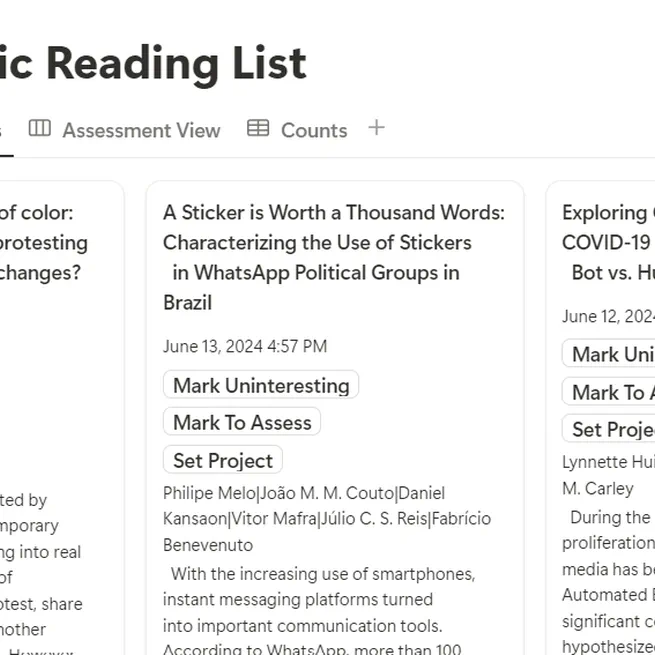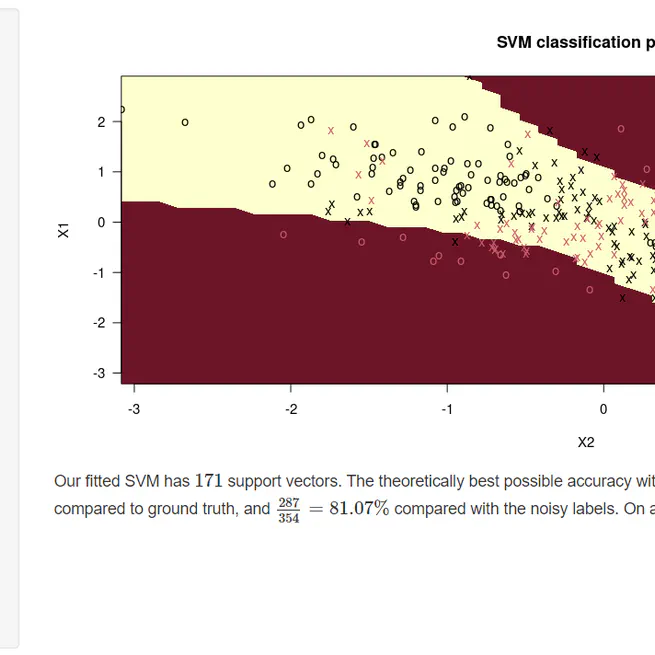
A constant problem in most scientists’ lives is keeping up with interesting new papers in their area. One classic “solution” to this is the arXiv digest emails – every morning, you get an email with a list of the titles and abstracts of all the papers published in the areas of your choice. Of course, of these, maybe one or two is interesting, so you end up spending a lot of time sifting through papers that are utterly irrelevant to you. Then, for the ones that were interesting, you try to keep track of them to read them “some day” – and all too often your system for that is just an endless list of open tabs you will get to “some day”. This project offers an improved solution to both these problems. Instead of getting the arXiv email, you can directly import all those papers into a Notion database, where you can then sort them according to tags, projects, or any other system of yout choice, with no risk of losing them all because Chrome crashed. It also offers a simple AI recommender algorithm that attempts to sort the papers by how similar they are to things you have found interesting in the past, automating away some of the first sifting of the data. There are still some more features I would like to add to this: I want to improve the recommender algorithm for it, and create a simple way to set this up to run automatically in the cloud for you, instead of having to manually trigger it each morning. Finally, using the stored embeddings of the papers for a RAG model, to enable chat about the stored papers, would be very interesting.
Sep 10, 2024

How do support vector machines work, anyway? This little page gives an interactive way to explore this question, by applying different kernels to a synthetic data set, along with some theory to explain what is going on. This was originally an assignment in a course on machine learning, but I went above and beyond to provide this interactive visualisation instead of just writing a static report on it. The full code behind the project is available in this GitHub repository.
Jun 12, 2022